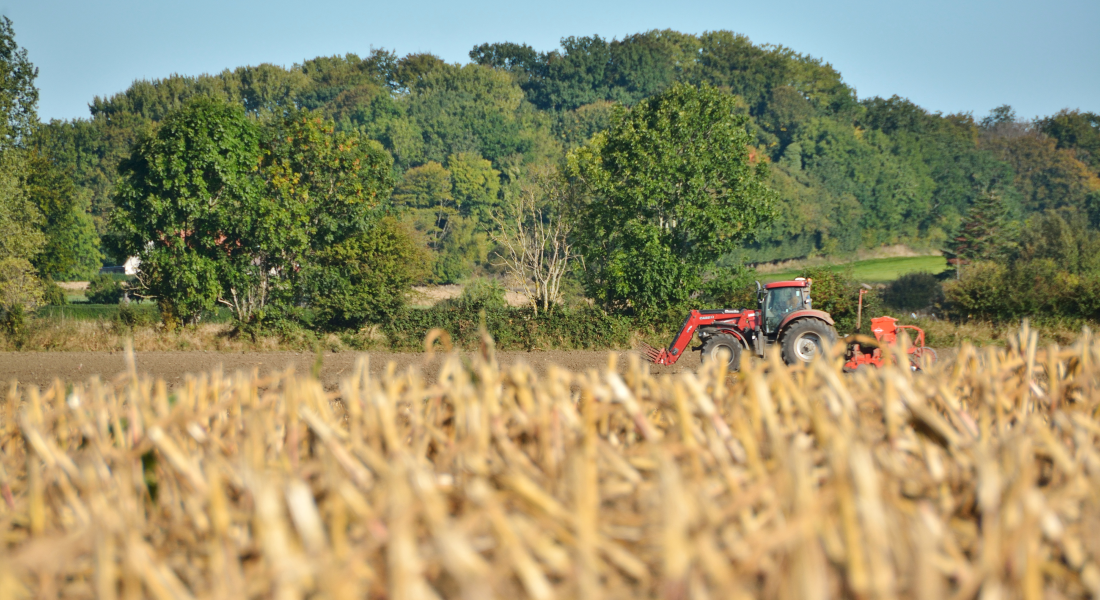Project will create new narratives about open landscapes
With support from THE VELUX FOUNDATIONS, a major research project will address land use change in Danish agricultural sector by working with local narratives about the open landscape. The aim is to investigate how narratives can be used as a tool in green transition.

The open landscape is high on the domestic political agenda. The conversion of agricultural land with a negative climate impact, such as peatlands, bogs and river valleys, to nature can help reduce CO2 emissions from agriculture. The political goal is to create new landscapes with increased biodiversity and new opportunities for outdoor and recreational life.
Conversion of agricultural lands into multifunctional landscapes involves the risk of conflicts over land use between groups with competing interests. Citizen involvement and local co-creation are therefore key words in the the planning and management of new landscapes.
The process inevitably raises questions about the dreams and ideas that people have about the future landscape, what narratives they build on, and how new, common narratives can promote the creation of more varied and climate-friendly landscapes.
An interdisciplinary research project led by Associate Professor Stine Krøijer from the Department of Anthropology will focus on these questions thanks to a four-year research grant of DKK 6,298,185 from THE VELUX FOUNDATIONS.
“People from all parts of the world have stories about their relationship to nature and the environment. In fact, narratives about the landscape are one of the ways people pass on their history, their connection to specific areas, and negotiate how it is ethically justifiable to act in nature. Stories are already a form of co-creation of the landscape, and we intend to build on that in our methodology,” says Stine Krøijer.
"In Denmark, the big narrative is the story of the great land reclamations that expanded the agricultural area, but time calls for some other stories, which we expect to find out there among the many people we will interact with."
Cases in three municipalities
The project will, in collaboration with the Danish Nature Agency and three municipalities (Viborg, Randers and Mariagerfjord), investigate three ongoing or upcoming cases in Northern Jutland: Glenstrup Sø, Nørreådalen and Sdr. Onsild Enge.
The three cases are also all part of the EU project ‘LIFE IP Natureman’, which until 2023 will create greater coherence between nature protection, aquatic environment, climate strategies and regional development in 40 areas.
As part of the project, the researchers will conduct more than 100 narrative interviews with landowners, residents, users and nature managers, but also participate in public meetings and workshops, just as field trips and audio-visual material will be included in the study.
Together, it will contribute to a better picture of the local narratives about the present and future landscape, and how the stories contribute to the process of planning. The ultimate goal is to be able to develop a method for how to work with narratives in multifunctional landscape planning and management, which will be beneficial to other municipalities and actors.
“I receive many inquiries from nature managers who are looking for methods to handle conflicts in connection with the establishment and management of new, wilder nature areas. We believe that stories can become an important tool in nature management, which can contribute to creating some new and exciting landscapes,” explains Stine Krøijer.
Read more about THE VELUX FOUNDATIONS' latest grants.
Topics
Contact
Associate Professor Stine Krøijer
Email: stine.kroijer@anthro.ku.dk
Telephone: +45 35 32 15 81
About the project
The project ‘Narratives and co-creation in multifunctional land consolidation’ runs until 2024 and is supported by THE VELUX FOUNDATIONS with DKK 6,298,185 from its HUMpraxis program.
The project examines the landscape's narratives through narrative interviews, field trips and audio-visual methods, all tested on workshops and citizen meetings. The aim is to develop a concrete and theoretically well-founded method for co-creation in multifunctional land distribution processes. In addition, the project will be part of the political preparations for an upcoming land reform in Denmark.
The project is carried out in close collaboration with partners from the Danish Nature Agency Himmerland and the municipalities of Mariagerfjord, Viborg and Randers. The Danish Society for Nature Conservation and The Danish Agriculture & Food Council, representing the farming and food industry, are part of the project's follow-up group.
The research group consists of associate professor and principal investigator Stine Krøijer and postdoc Inge-Merete Hougaard, both affiliated with the Department of Anthropology, and associate professor Lone Kristensen from the Department of Geosciences and Natural Resource Management. In addition, an anthropologist will be employed as a research assistant on the project.
